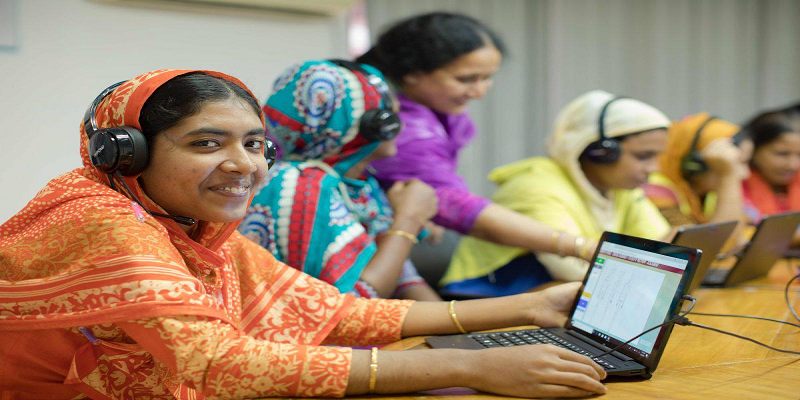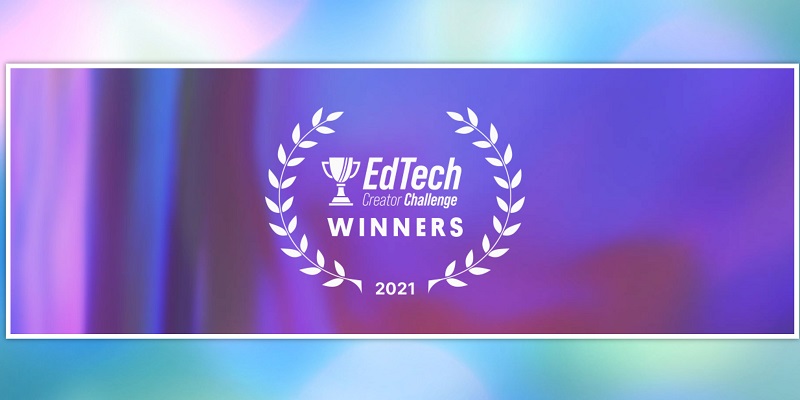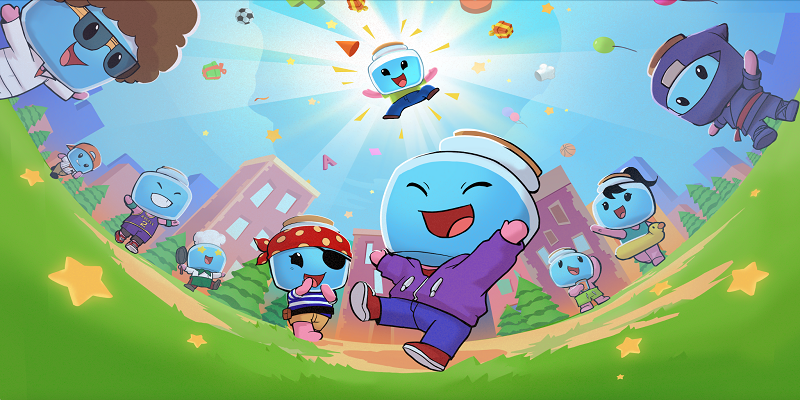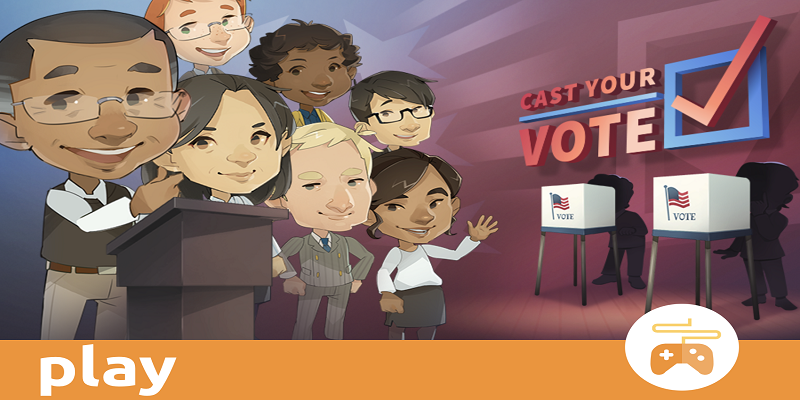World leader in creating and operating interactive, real-time 3D (RT3D) content, Unity and leading EdTech investment firm GSV Ventures jointly announced five winners of the EdTech Creator Challenge and shared details of top 25 projects. Each of the top five winners received $100K as funding from Unity and $10K of Amazon Web Services (AWS) cloud computing credits from Amazon Web Services EdStart. Their top 25 winners will receive $2K in AWS credits.
Unity and GSV Ventures partnering together funded over $7 trillion in the education technology sector in August 2021. Together they launched the challenge to empower creators to continue to change the landscape of education and support all learners using Unity.
“Real-time 3D powers a vast array of immersive learning platforms and tools designed to advance the technical skills of the next generation, and increase access to quality learning experiences around the world. We’ve spent the last few years contributing our products, technology, and expertise to support more than 400,000 students and educators learning Unity per year,” Unity said in a statement.
The Top five winners of EdTech Creator Challenge are:
1. Blue Studios- Blue Studios is a live and on-demand ‘Pre K-12 STEM’ edutainment platform that leverages automation and synthetic media to create content cheaper, faster, and better, while also enabling any creator in the passion and gig economy. Using game-design principles, they believe that they can create the perfect teacher, accessible to any child, around the world, available 24/7 in any language using synthetic media.
Prior to Blue Studios, the two founders, Kelley and Emile, generated over $5 million in revenue for STEM curriculum and instruction. Today, Blue Studios has eclipsed over 10,000 monthly subscribers in over 10 countries to date.
2. Boddle Learning- Boddle’s mission is to create interactive experiences that improve student outcomes and inspire learning, particularly for students in under-served communities. By using AI and gameplay, they help kids in underperforming schools catch up by boosting engagement, and by tailoring learning to the right individual levels.
Boddle Learning currently serves over 425,000 students in 28,000+ classrooms all over the United States and is also used in over 50 different countries. Boddle aims to inspire the next generation of lifelong learners with interactive learning experiences and is building a metaverse where educational content of any subject and topic can be delivered to kids through an ever-expanding selection of interactive games that meet them exactly where they are at.
The company was named after the unique bottle-headed game characters that were created to illustrate filling up on knowledge like how you would fill up a bottle. While Boddles are learning, their heads fill up, and then they pour back out to grow plants and perform superpowers. This teaches them the importance of filling up on knowledge and pouring back out to help others!
3. iCivics- Before founding iCivics, Sandra Day O’Connor had never opened up a computer in her life. But after a 12-year-old convinced her that educational gaming was the right approach to teaching young people what they need to be engaged citizens, she discovered that we can all learn something from kids, and iCivics was born.
iCivics envisions a thriving American democracy supported by informed and civically engaged young people. They champion equitable, non-partisan civic education so that the practice of democracy is learned by each new generation. They work to inspire life-long civic engagement by providing high-quality and engaging civics resources to teachers and students across our nation.
iCivics has found that students who receive a comprehensive and high quality civic education are more likely to be informed and actively engaged citizens and voters. Specifically, they are more likely to vote and discuss politics at home, complete college and develop employable skills, volunteer and work on community issues. Their games and resources are proven, by both external validation and internal measures – to improve students’ civic knowledge, civic attitudes, and core literacy skills.
“Over the last five years, iCivics has more than doubled its reach from 64,000 educators and four million students in 2016 to 140,000 educators and nine million students today. We’re excited to support their growing impact,” it said.
4. Shimmy Technologies- Shimmy Technologies’ AI-powered app-based training is designed to upskill and reskill garment manufacturing workers anywhere, supporting efficiency, spikes in demand, and Industry 4.0. While automation can sometimes substitute for human work, it also, more importantly, has the potential to create new, more valuable, and more fulfilling careers for humans. Shimmy focuses on understanding how work and automation will evolve over time.
Since 2018, Shimmy has conducted pilots in Indonesia, Bangladesh and the US. They’re on track to upskill 1600+ workers in five large factories in Bangladesh by the end of 2021 and are in the process of signing agreements committing to upskill and reskill 14,000 more workers across additional factories in 2022.

The company name comes from the famous ‘shimmy’ dance move, originated in the 1900’s and was considered a rebellious act when performed. It is also how mechanics describe what happens when you flip the switch on a machine and it springs to life.
5. Social Cipher- Social Cipher’s mission is to to represent and empower youth of all neurotypes, to increase their self advocacy skills, and ultimately, to build their self confidence. Social Cipher is a social-emotional learning (SEL) platform that connects youth of all neurotypes and their advocates (counselors, teachers, mental health professionals) in an immersive virtual world and empowers them to navigate the universe.
Both the game and curriculum are not based on teaching kids how to emulate neurotypical behaviors and rewarding them for their ability to assimilate. Instead, it aims to develop children’s social emotional learning skills to help them foster a healthy sense of self.
40 per cent of Social Cipher team members are on the autism spectrum. They use the framework of the social model of disability to inform their intentions as a company. Currently in pilots with 16 different schools and therapy centers, 94 per cent of professionals reported that their youth were more engaged and motivated to learn using Social Cipher. Above all, 100 per cent of students in the pilot program wanted to keep playing the game series!
Here are the 25 finalists of EdTech Creator Challenge:
- STEMuli
- Age of Learning
- Hellosaurus
- ARch-ae-o Explorer
- Teach the World Foundation
- Scholarcade
- Manoké, Inc
- Buddy.ai
- Xplorealms Ltd
- Vidaly, Inc.
- VictoryXR
- XR Lab at Bellevue College
- Movers & Shakers
- Immersed Games
- Shoonya Digital
- Enduvo
- Arizona State University Learning Futures
- Transfr
- Baltu Technologies
- SimInsights Inc
- TechRow
- The VR Hive
- XpertVR
- LUDUS TECH SL
- IDEA Games
Also, Unity has announced it’s latest grant opportunities, the Unity for Humanity 2022 Grant and the Imagine Grant at the Unity for Humanity Summit on 12 October. The Imagine Grant was created in partnership with award-winning artist, actor and activist Common. The theme is inspired by his latest single, Imagine. The grant will be awarded to the project that best ‘imagines a better world’.
“Applications for both grants are open through 3 December 2021. We’re awarding $500K (USD) in total across the grants. While a single project cannot receive both the Imagine Grant and a Unity for Humanity 2022 Grant, you can apply for both via the same application,” Unity added.





